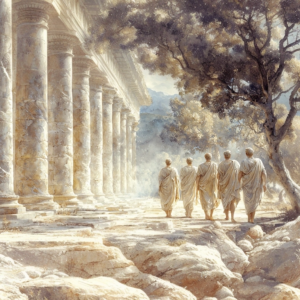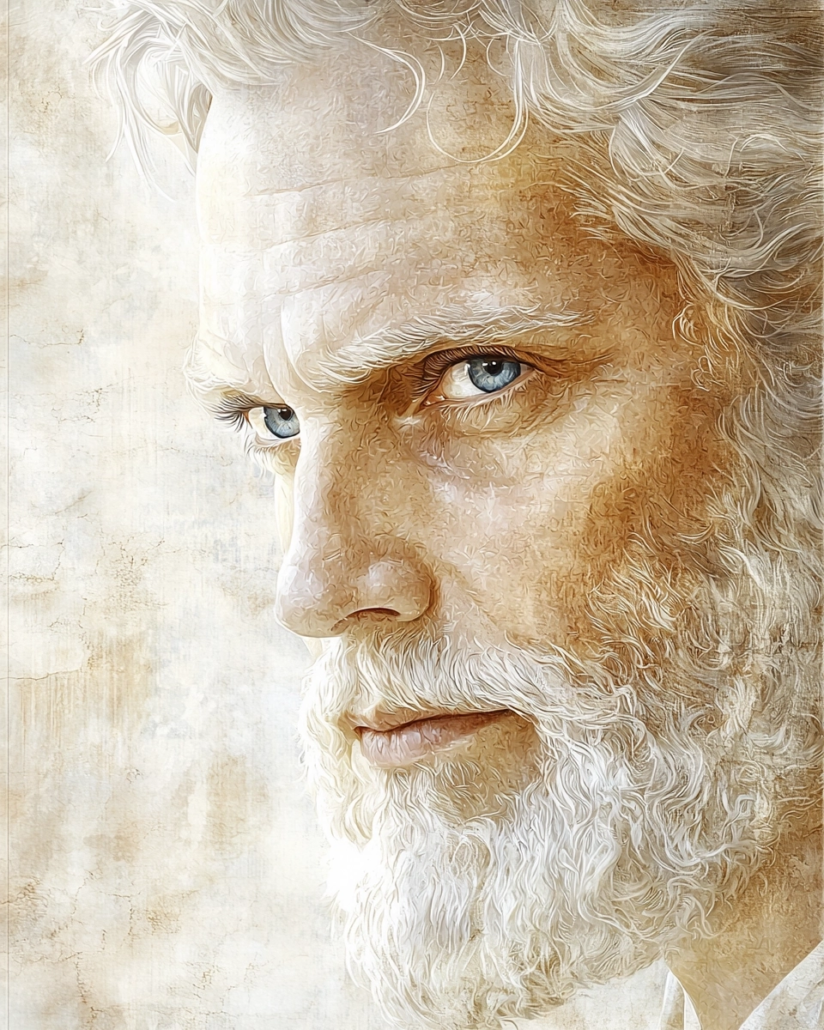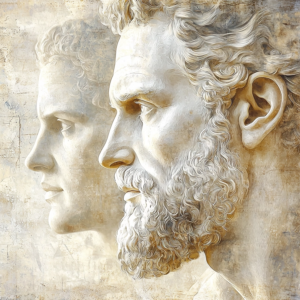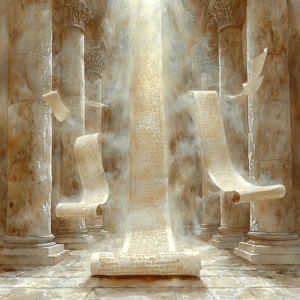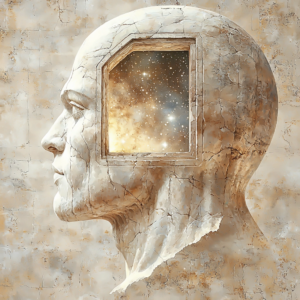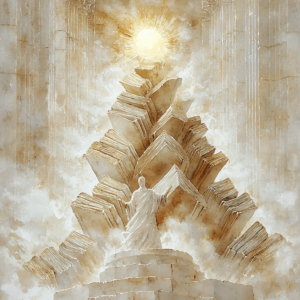Great Philosophers of Stoicism and the Stoa 🌟
Why Stoic Philosophy is More Relevant Than Ever
Stoicism is not just an ancient theory – it is a way of life that helps us find tranquility and build mental resilience. In a world full of uncertainty and constant stimulation, Stoic principles can support us in maintaining balance. From early thinkers to modern interpreters, the teachings of the Stoics remain a timeless guide to inner peace.
How Stoicism Builds Mental Strength
Inner Peace Through Stoic Principles
Founded in the 3rd century BCE by Zeno of Citium, Stoicism is more relevant today than ever. For those caught in a storm of stress, self-doubt, or anxiety, Stoic principles provide an anchor. The four cardinal virtues – wisdom, courage, justice, and temperance – serve as a compass for a stable and balanced life.
Thinkers like Cleanthes and Chrysippus developed Stoic philosophy further, demonstrating that happiness is not dictated by external circumstances but by our inner mindset. Stoicism teaches us to control our reactions and accept the inevitable with composure.
Practical Application in Daily Life
As Stoicism spread, philosophers like Panaetius of Rhodes and Posidonius realized that philosophy must not remain a dry theory but provide tangible solutions for everyday life. Getting upset over things beyond our control wastes valuable energy. The Stoic mindset helps minimize worries, make clear decisions, and focus on what truly matters.
Stoic Calmness in Difficult Times
The late Stoics taught that challenges and setbacks are not obstacles but opportunities for growth. Seneca wrote about the art of resilience, Epictetus emphasized the importance of inner freedom, and Marcus Aurelius, as an emperor, exemplified how to remain Stoic under pressure.
“It is not because things are difficult that we do not dare, but because we do not dare that they are difficult.” – Seneca
“Do not dwell on what you endure, but on how you endure it.” – Epictetus
“Consider each day a life in itself.” – Marcus Aurelius
The Significance of Stoicism in the Modern World
Although rooted in antiquity, Stoic philosophy has stood the test of time. It has influenced thinkers like Descartes and Spinoza and continues to inspire modern figures such as Ryan Holiday and Donald Robertson. Today, Stoic teachings are widely applied in leadership, self-management, and personal resilience.
Why Study the Great Stoic Thinkers?
Exploring the works of great Stoic philosophers provides timeless insights and practical wisdom. Their teachings guide us toward a virtuous, calm, and purposeful life, aligned with nature. Through reflection, self-discipline, and focusing on what we can control, Stoicism offers a clear path to mastering life’s challenges.
The Great Philosophers of Stoicism and the Stoa
Stoicism has been shaped by extraordinary thinkers who developed and refined its principles. They embodied wisdom, virtue, and inner strength – values that remain timeless today. Discover their lives, ideas, and the lasting impact of their teachings on philosophy and modern thought.
Stoics – Their Teachings and Legacy
Not every Stoic was an emperor or philosopher – some were teachers, politicians, or poets. To make it easier for you, we’ve grouped the most famous Stoics into categories. From the founding fathers of Stoicism to practical life philosophers – here you’ll find Stoics categorized by their focus.
👉 “Take your time to truly absorb the wisdom of the great Stoics. Choose one or two philosophers a day and let their thoughts sink in – not hastily, but mindfully. Every insight is a seed that takes root in your mind and blossoms over time.”
Meet the Great Stoics – Philosophers and Rebels
1. Founders and Systematizers – The Architects of Stoicism
The origins of Stoicism were shaped by schools of thought that laid its theoretical foundations. This is where the core ideas were developed, forming the basis for future generations. Without these early thinkers, there would be no Stoa.
2. Teachers and Promoters – Those Who Passed on Stoicism
Stoicism was not only practiced but also taught. These philosophers ensured that the teachings of the Stoa were preserved and passed down – a tradition that continues to inspire today.
Rulers and Statesmen – Power Meets Philosophy
Some Stoics bore responsibility not just for themselves but for entire realms. They sought to merge philosophical principles with practical governance and uphold virtue in politics.
Practitioners and Life Philosophers – Stoicism in Everyday Life
For these thinkers, Stoicism was not just a theory but a guide to living. Their teachings help navigate challenges, emotions, and daily decisions with greater calm and clarity.
Cosmologists and Metaphysicians – Stoicism and the Universe
These philosophers sought a deeper understanding of the universe and humanity’s place within it. Their ideas bridge philosophy, natural science, and cosmic order.
Poets, Orators, and Writers – The Eloquent Stoics
For some Stoics, language was the most powerful tool to convey wisdom. Through speeches, poetry, and writings, they shaped the image of Stoicism for future generations.
Revolutionaries and Rebels – Defiance Against Tyranny
For some, Stoicism was more than just inner peace – it was a commitment to principles, even in times of oppression. These thinkers demonstrated that resilience often comes at a price.
“Stoicism is more than history – it’s a philosophy of life that continues to inspire. Whether you’re drawn to cosmic thinkers, practical life philosophers, or bold rebels, the Stoa has something for everyone. Dive in and discover which Stoic principles can enrich your life.” ✨
Please Note
The content of this post is for informational and inspirational purposes only. It does not constitute personal, psychological, or medical advice. For individual concerns, please consult an expert. Learn more: Disclaimer.


